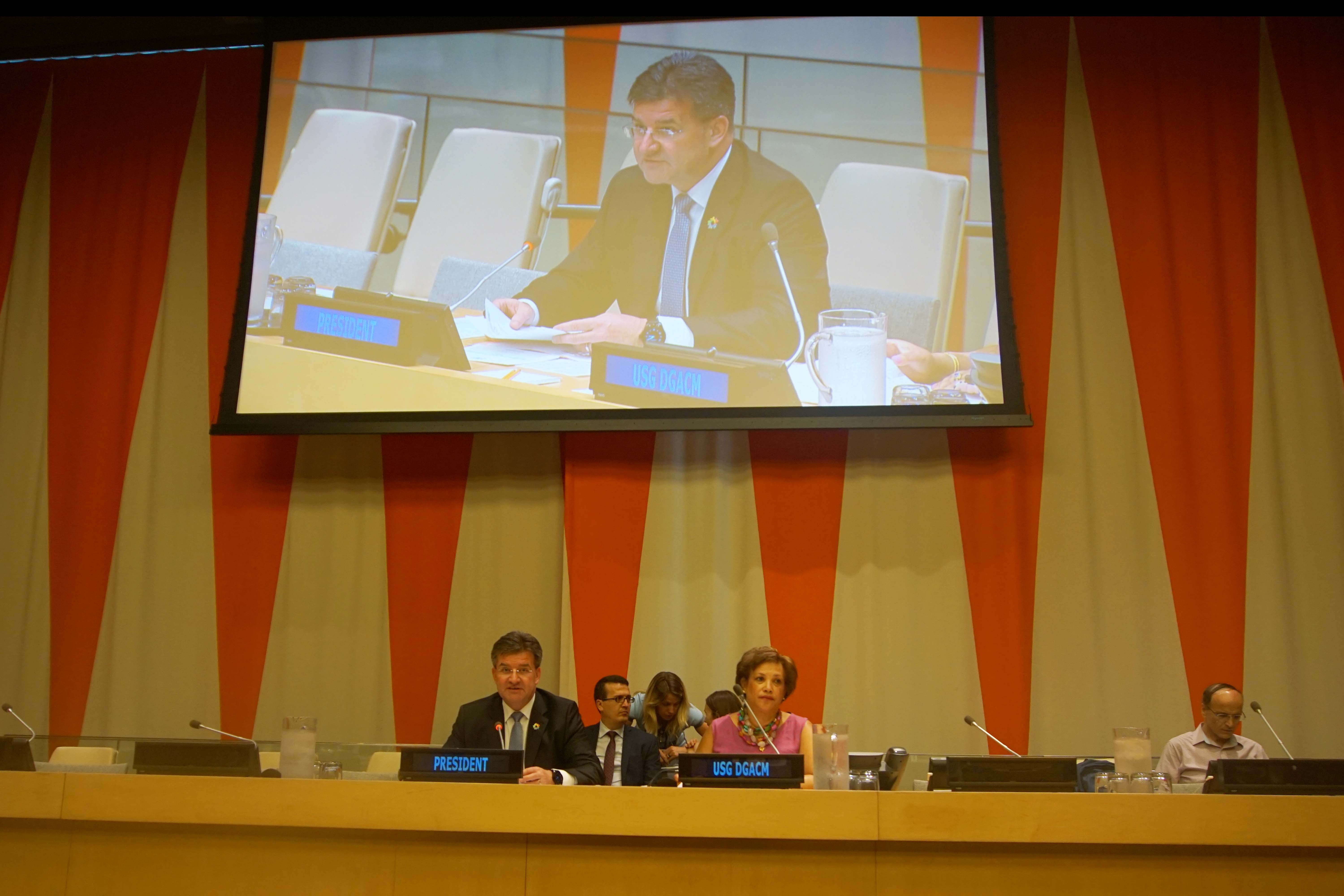High-Level Interactive Dialogue on Sand and Dust Storms

– As delivered –
Statement by H.E. Mr. Miroslav Lajčák, President of the 72nd Session of the UN General Assembly, at High-Level Interactive Dialogue on Sand and Dust Storms
Excellencies, Ladies and Gentlemen,
More and more, the planet is demanding our attention. And we can no longer ignore it. Today, we are focusing on Sand and Dust Storms. And in this regard, we will ask ourselves: how can we improve global coordination? What specific challenges do countries face?
And we will also identify action-oriented solutions to these challenges.
But first, I would like to recognize the role of Iran and the G77 + China in promoting this important dialogue on Sand and Dust Storms. This dialogue is a continuation of the discussions during the International Conference on Combatting Sand and Dust Storms held in Tehran last July.
These storms present a risk to people’s health and livelihoods. Economies also suffer, with consequences for agriculture and transportation. And, of course, they affect our environment, having a close relationship to climate change and biodiversity loss. All of these factors, in turn, hinder our progress towards the 2030 Agenda.
This can be a technical topic but it is one that affects people all over the world, from Africa to the Middle East and beyond. Today I will look to the challenges and solutions through the lens of people rather than an expert.
My first point is that, for people, the stakes of inaction on this issue are high. Human well-being is at risk. Studies detail the effects on health: from respiratory and cardiovascular disease, to skin and eye problems – as we have just seen, in the movie.
Practically, the result is that, in many areas, parents do not allow their children to play outside. People are not able to move freely about their neighborhoods. Transportation grinds to a halt. And productivity goes down as a result. Thus, people’s livelihoods are affected.
It is clear, then, that the storms also affect our economies. One sand or dust storm can cost hundreds of millions of dollars. The losses are really felt in the agriculture, transportation and infrastructure sectors. These are resources that could have been channeled towards sustainable development at a time when we need to mobilize more for the 2030 Agenda.
So, my second point is that we must tackle this phenomenon against the backdrop of the 2030 Agenda. The dialogue is particularly timely as we review a number of environment-related goals this week.
We must approach this challenge in a holistic way. We know that the storms are caused or worsened by human activity – from mismanagement of water to land degradation. Tackling climate change also, indirectly, mitigates these storms. Likewise, we need to use our land in a way that does not increase the incidences of sand and dust storms. And this is a shared global responsibility.
These storms cross borders, making them not just the concern of any one country. Of course, some are more affected than others. If you are from an arid or semi-arid area, chances are that you know first-hand, how dangerous these storms can be.
My final point is about the need for urgent action. We have to do more: to keep the global temperature rise below 2 degrees Celsius and try to keep it below 1.5; to end pollution; and to combat desertification. Also, we need to improve our early warning systems so that when, inevitably, a storm comes, we are prepared.
For the last three years, the General Assembly has pledged to take action on sand and dust storms. But we cannot do this alone. I would like to thank the United Nations agencies doing critical work in this area. And to encourage more Member States to work in tandem with the Rio Conventions, on climate change, biodiversity, and importantly, combatting desertification.
Today, we have the opportunity to fill our knowledge gaps, to share solutions with one another, and to see the linkages between global agendas and national policies.
And I hope that at the end of this dialogue, we can have a set of action-oriented recommendations.
I wish you all fruitful discussions today. And I thank you.